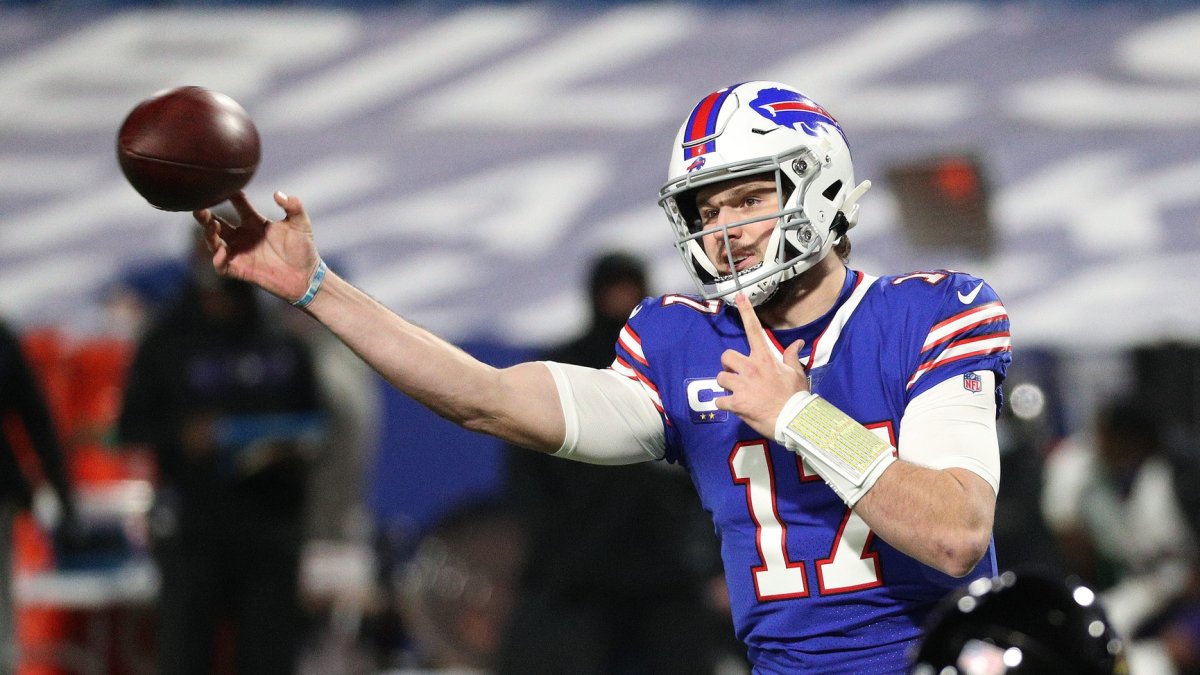The 2020 offseason was a hopeful one for the Buffalo Bills. The team’s fans and betting markets gave them a strong chance to win the AFC East for the first time in 25 years, and optimism was relatively high that Josh Allen could take a step forward with another offseason of work and the addition of star wide receiver Stefon Diggs.
As we head into the NFL Conference Championships, the results for Allen and the Bills have vastly exceeded those relatively lofty expectations. Allen jumped from 24th (61.9) to fifth in PFF passing grade (89.8), and the Bills finished with the second-best record in a stacked AFC.
The Bills are now a legitimate championship contender, mainly because Allen has made, according to the stats, the greatest third-year leap in modern NFL history.
Last offseason, I looked at the chances for third-year quarterbacks who had been below average over their first two seasons — players such as Allen and Sam Darnold — to break out to become above average over the next several years. The broad takeaway was that breakouts for these disappointing quarterbacks are possible but not something you should feel confident about.
Allen then smashed those expectations, now becoming the shining example for patience at the quarterback position.
When you look into the historical numbers, the more useful takeaway from Allen’s breakout isn’t opening up possibilities for others but highlighting the degree to which his improvement was an outlier in the history of the NFL.
If you want to bet on the changing dynamics of the league making history irrelevant, then reserving hope for disappointments like Drew Lock makes sense. However, the more sensible perspective going forward is to adjust expectations for quarterbacks going forward, though only to the degree that a single data point matters, which isn’t as much as many think.
Exclusive content for premium subscribers

WANT TO KEEP READING?
Dominate Fantasy Football & Betting with AI-Powered Data & Tools Trusted By All 32 Teams
Already have a subscription? Log in




 © 2025 PFF - all rights reserved.
© 2025 PFF - all rights reserved.